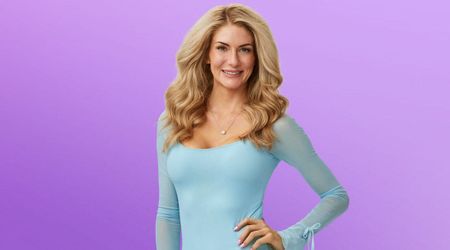'Everything's Gonna Be Okay' sets the bar high by exploring controversial topics and tearing down stereotypes

This article contains spoilers for the released episodes of 'Everything's Gonna Be Okay' Season 1
Josh Thomas' Freeform series 'Everything's Gonna Be Okay' explores mental illness, sexuality and gender identification, autism and relationships through comedy. For the four episodes that have been released, it is clear that the show has set the bar high in terms of breaking down stigmas associated with the themes above. The show's narrative has allowed each character to be a pawn in bringing to light the importance of having conversations rather than standing on idle ground about society's unwanted judgment.
Most recently, the Netflix original '13 Reasons Why' portrayed the harsh realities of high school bullies and suicide. While some rationalized the intense scenes with it being the "real truth", some audiences felt it was offensive and might encourage vulnerable minds. To each their own, but we think that 'Everything's Gonna Be Okay' focuses on dark themes as well, but does so in a way where it's not "in your face." Using comedy, silliness and honestly the "real" behind the minds of erratic teenagers, the series has so far managed to tackle "uncomfortable issues" with respect and ease.
A hard narrative to keep steady, Thomas cast Kayla Cromer, the first actor, male or female, with autism to be playing an autistic character in a leading role on a TV show. She plays the role of Matilda and her character is given a narrative in which she's adamant that she follows the milestones of a "normal" teenage girl without a magnifying glass on her. So far we've seen her want to satisfy her curiosities of teenage drinking, hangover vomiting, college and dating boys - a normal aspect of any teenager's life. Cromer has managed to make her character a shining star rather than a beaten-down victim.
Taking feminism to a whole other level, Matilda has a strong need to explore the complexities of teenage life but still needs protection because the truth is she's vulnerable to most things. How her brother, Nicholas (Josh Thomas) deals with it is what stands out in the show. The realities of parenting are usually tackled with infants, in this case, we see the struggles of awkward teenagers as their neurotic brother tries to be "in charge" in the most responsible way possible while living a life of his own. Thomas has authentically portrayed how a normal day of a person living with autism looks like while adding the complexities of family deaths, curiosities of sexual endeavors and needy relationships to it. With women with autism being underrepresented on TV, not only is this a big win for the entertainment industry but it sets the bar high for future creators to explore characters and actors with autism as an interesting option.
While there are many recent shows that touch upon controversial topics, the delivery of 'Everything's Gonna Be Okay' seems to have a much more comfortable and less hostile approach. There is no distinct way to portray how a family might deal with loss and teenager parenting an autistic child, but the relatability aspect of the show is amazing and was highly regarded. Besides laughing while watching the series, you can't help but wonder about how it makes you want to stand up for social justice. That could be just us, but we're banking on more people being involved in the awareness and support of mental health, LGBTQ+ community, autism and simply excellent execution of harsh realities.
'Everything's Gonna Be Okay' airs every Thursday at 7:30 pm CST on Freeform










